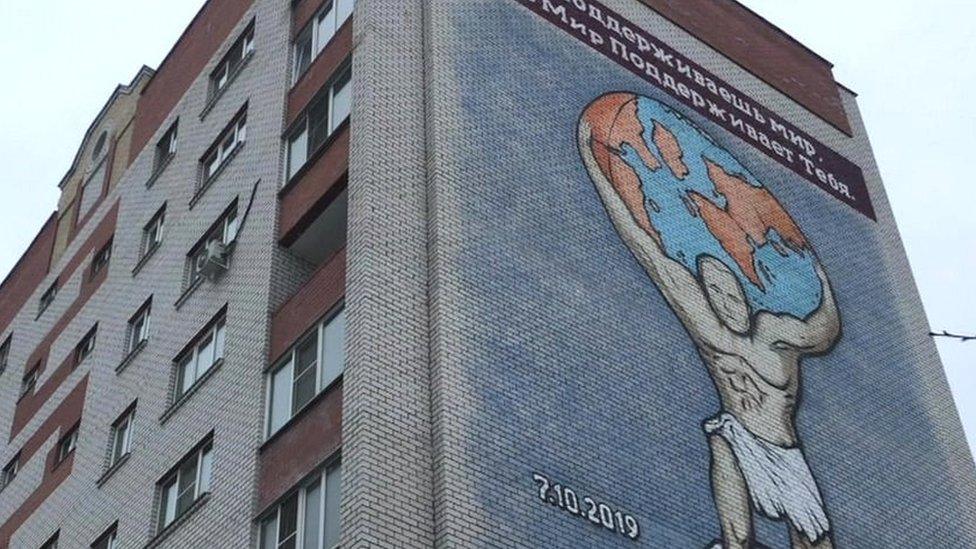What Putin's plans mean for Russia
- Published
Putin's plans: What the Russian president's surprise means
Russia has a new prime minister, a change no-one predicted only a day ago. The long-serving Dmitry Medvedev has been replaced by a man most people had never heard of, until now.
Not only that, President Vladimir Putin has initiated a major reform of the constitution that looks like the start of his "transition": a much-anticipated plan to retain influence when he has to leave the Kremlin in 2024.
The details of that plan are still unclear, but this week's surprise shake-up offers curious new hints.
Why did the prime minister have to go?
Mr Medvedev's departure was a shock - or at the least, the timing of it. But it seems he's become his boss's fall guy, yet again.
He's long been a loyal sidekick to Vladimir Putin - most controversially when he kept the Kremlin warm, as president, for four years until the constitution allowed Mr Putin back in 2012. Now he's taking the rap for Russia's economic problems.
The patriotic "blip" over the 2014 annexation of Crimea has faded, and for many families there's no replacement balm for the harsh realities of life. Mr Putin's state of the nation speech this year recognised that, focusing heavily on welfare instead of sabre-rattling at the West.
So he's brought in a new man to sort out the economy, and state TV has been pumping out positive messages. Mikhail Mishustin, Russians are told, is experienced and able.
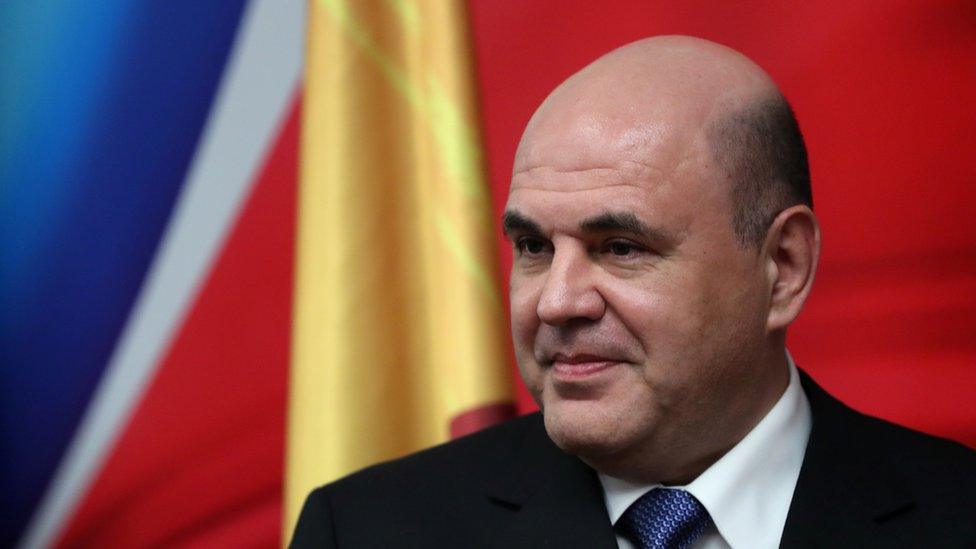
The previously unknown Mikhail Mishustin has been named as Russia's new prime minister
The shake-up buys time and goodwill ahead of next year's critical elections to parliament, where the main pro-Kremlin party, United Russia, is likely to struggle.
But it also helps buy support for Mr Putin's bigger changes.
What exactly does Mr Putin want to do the constitution?
Vladimir Putin is presenting his constitutional reform in the same vein as the prime minister swap.
The changes involve a rebalancing of responsibility - slightly less for the president, more for parliament. Mr Putin has explained it as bringing power closer to the people: MPs will get more say in forming the government, for example.
He argues it's more democratic, and will be more effective.
But most commentators see that as masking another agenda: Vladimir Putin carving out a suitable role for when he has to pack up and leave the Kremlin. After two decades in power he has interests and allies - a whole system - to protect. He may not want to bother himself any more with the day-to-day running of the country, but he's unlikely to fade away altogether.
How ordinary Russians have taken to appealing directly to Putin to solve their problems
The role of the little-noticed State Council could be central to his future.
Mr Putin is already its head, and now plans to enshrine the council in the constitution. It's just an advisory body for now. Souped-up, it could be a way to continue pulling the strings of power. Think Raul Castro, stepping back from the Cuban presidency, but still the powerful Communist Party GenSec. Or the Kazakh model, closer to home, where Nursultan Nazarbayev remained head of the security council and "Leader of the Nation" for life.
Vladimir Putin could be looking for his way to become Russia's supreme leader.
Can't he just stay on as president?
There was speculation that Mr Putin might simply remove the two-term limit for president in the constitution. Nothing is ever ruled out, but that would be highly controversial even in Russia's managed-democracy.
When Mr Putin and Dmitry Medvedev did their seat-swap back in 2012, it caused giant street protests. There were more pro-opposition rallies this summer.
The Kremlin probably wants to avoid more of the same, especially in a tough economic climate.
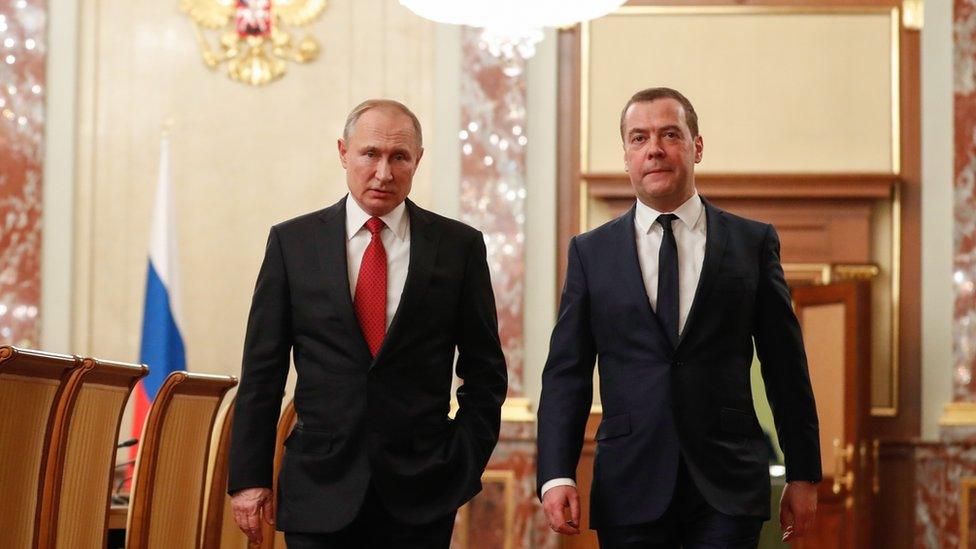
Dmitry Medvedev has long been loyal to President Putin
It's thought that Mr Putin is looking for a pliable replacement for himself instead: Putin II. There's still a chance Mr Medvedev could stage a comeback for that role. He's been side-lined, not shamed, after all. It's also possible the new Prime Minister Mishustin could be president-in-waiting. But after this week, Vladimir Putin seems more likely to surprise us.
How or when will we know about his plans?
Mr Putin still has four years in the job, so there's no major rush with the constitutional changes, although events have moved unusually fast lately.
He has set up a working group, 75-people strong, to draw up concrete proposals for the reforms, and has already given them their instructions. Around a giant table, Mr Putin warned the team to take care over "every letter, every comma", as their work concerns the fundamental law of the land.

The newly formed working group is in charge of amending the constitution
Once the proposals are done, his vision should be clearer. Some kind of public confirmation vote is expected before the summer. The Kremlin has ruled out a formal referendum, though. It would be risky.
Despite all the talk of democracy, Mr Putin wouldn't want his big plan - when it's finally presented - to be rejected.
- Published15 January 2020
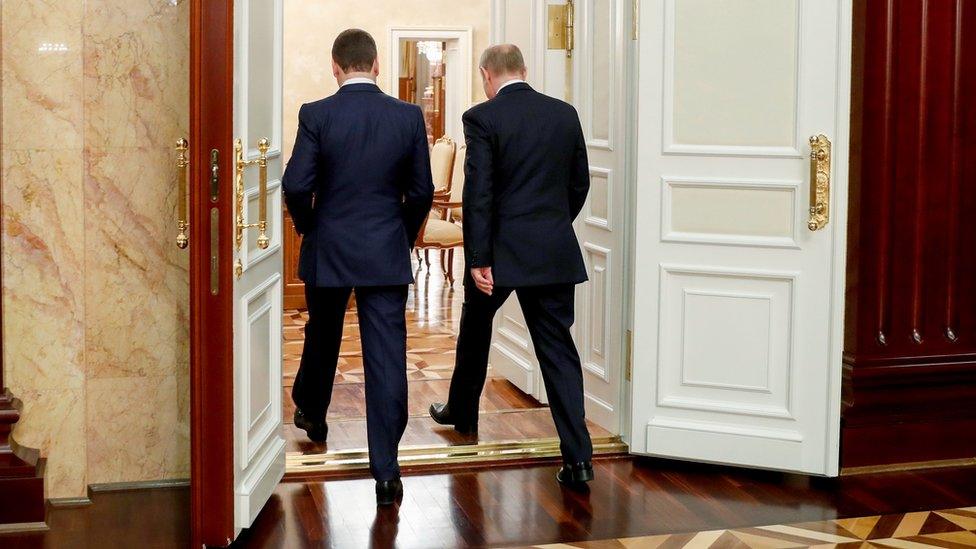
- Published15 January 2020
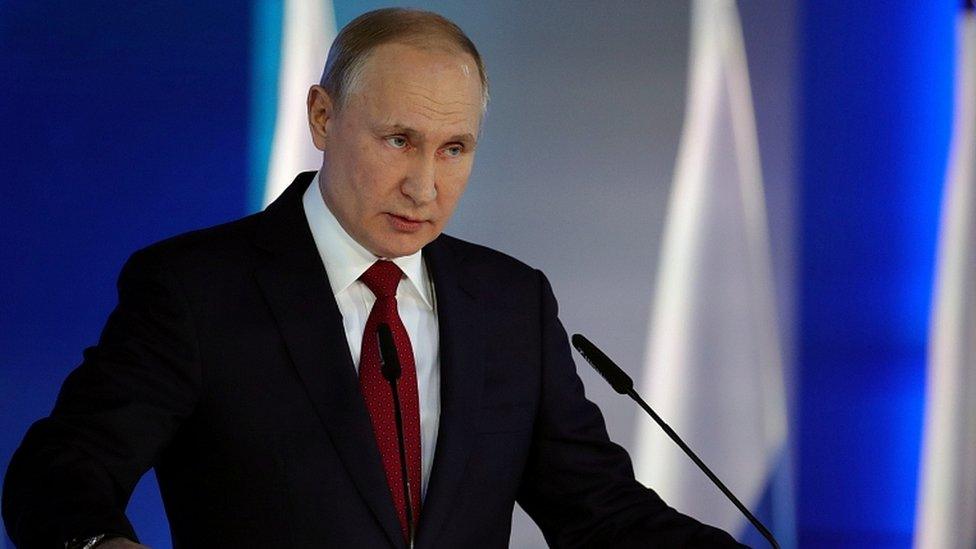
- Published15 January 2020
